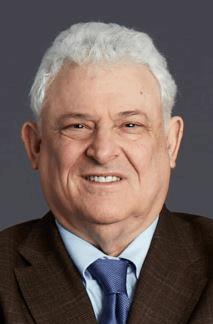Should We Rethink Randomized Clinical Trials?

By Ed Miseta, Chief Editor, Clinical Leader

If we want to accelerate the drug development process, is it time to reconsider randomized clinical trials? That was the main question asked at a recent colloquium that included industry leaders from pharma networks, academia, patient groups, major medical centers, and the FDA. The discussion, hosted by the New York University School of Medicine and the New York Academy of Sciences, with support from Johnson & Johnson, focused on the ethical, medical, scientific, safety, and economic issues around the design of randomized controlled clinical trials.
Dr. Arthur Caplan, director of the NYU Division of Medical Ethics and chairperson of the Compassionate Use Advisory Committee, agreed to speak with Clinical Leader about the meeting and where the industry should go from here.
Ed Miseta: How did the idea for this colloquium come about?
 Dr. Art Caplan: We put the idea for this meeting together about 18 months ago. We knew that speeding up the approval process for new drugs was a hot topic in the industry and academia. We felt bringing these folks together for a public discussion about where we are and where we need to go with randomized trials would make for a timely discussion.
Dr. Art Caplan: We put the idea for this meeting together about 18 months ago. We knew that speeding up the approval process for new drugs was a hot topic in the industry and academia. We felt bringing these folks together for a public discussion about where we are and where we need to go with randomized trials would make for a timely discussion.
Miseta: Why are people beginning to rethink the idea of randomized clinical trials?
Caplan: The randomized trial has, for decades, been considered the gold standard by many in the industry, particularly the FDA. The placebo-controlled, double-blinded study has been heralded as the best way to secure evidence of the safety and efficacy of a new drug. However, there are now many reasons why that overriding assumption may not hold true. For example, we can point to the Right-To-Try movement which is trying to push legislation through congress. The argument is that if patients are sick or dying, they may not have time to await the results of a randomized study. Additionally, many patients might not even be eligible to take part in a trial. Finally, if patients are sick and dying, they are not that concerned about the potential dangers of a new treatment. They simply want a path forward to gain access to unapproved drugs.
Miseta: Do you believe we should use legislation to get access for patients?
Caplan: No. I understand the argument, but I believe any attempt to form a pathway by state and federal laws, which bypasses the role of the FDA, is not well thought out. We seem to have a belief in this country that doing something is better than doing nothing, but that is not always true. In this instance, I do not believe these laws will provide greater access to drugs for patients.
Ultimately, any decision about making a drug available to patients falls to the sponsor company, not the FDA. FDA will only get involved if a company said it was willing to give something away prior to approval. In those cases, the company will go to FDA to get its blessing, and the FDA always gives it.
Still, the randomized trial caters to a very select and narrow group of subjects. They are often people who are sick but also young and without a lot of complications. One step we may need to take to appease the Right-To-Try advocates is broadening the inclusion criteria for reporting data. Studying folks who are not included in a trial may be the way to go. But we still need to be able to discern what is being caused by the underlying disease and what might be a side effect related to a new drug.
Miseta: More than ever before, patients are making their voices heard. Is that a good thing?
Caplan: There is no silencing the patient voice in trials. Patients are much better organized than ever before. The patient advocacy groups are very vocal in Washington, D.C., and orphan disease groups are now playing a big role in driving the direction of research, especially in the area of funding. This has resulted in pharma companies building their patient relations groups as quickly as possible. I also see more patient groups giving advice to pharma companies. This force is moving forward and there is no turning back.
Miseta: Will there be a bigger push for more adaptive trials?
Caplan: I think we will definitely see increased pressure to look at alternative trial designs. That will certainly include adaptive designs and case control studies, among others. I think any insistence that there always be a double blind, randomized trial is not sensible. Some situations, such as an unexpected Ebola outbreak in Africa requiring a new vaccine, do not permit getting a standard randomized trial organized. In certain instances of rare disease you do not have the patient numbers to conduct a randomized trial. In other instances, it would simply be considered cruel and unethical to run a placebo arm. In those cases we will definitely look at alternative trial designs to the gold standard RCT and ask when they would be appropriate.
Miseta: Another trending area of discussion seems to be patient reports.
Caplan: That’s true. The drug eteplirsen (produced by Sarepta Therapeutics), developed to treat Duchenne muscular dystrophy, which we discussed at the conference brought wide attention to this topic. In that case, there was a good amount of controversy because patients and caregivers were reporting success in children battling the disease, whereas some of the individuals on the FDA advisory committee did not see the same information coming in on reports from researchers. Regardless, patients say more attention needs to be paid to their reports. They will want more of a voice in the kind of data that the FDA considers when making a decision. I believe the FDA will get pushed hard to pay more attention to patient input, and I do believe we will eventually see that happen.
Miseta: If we speed up the approval process from Phase 1 to Phase 3, will we then have to increase the amount of effort we put into Phase 4 trials?
Caplan: That’s a very good question, and I think the answer to that is a resounding, “Yes.” We have post-marketing surveillance going on right now that you could argue is quite poor, and I don’t believe we are conducting the right kind of oversight.
That being said, I think it is safe to say that more speed brings additional risk. If we speed up the approval process and rely on less evidence to confirm efficacy and safety, we will need to have some post-approval surveillance system in place to detect problems. The FDA’s Sentinel System definitely needs improvements, and I am in favor of that. I think the big question in the current climate is whether there is a willingness on the part of politicians to spend more money on surveillance.
Miseta: Are pharma companies prepared to do more post-approval studies?
Caplan: I don’t think they are set up to do what really needs to be done. Companies can generally handle a Phase 4 study if they are mandated. But I do not believe they are prepared to perform general surveillance of the entire system. I think what would be required is the creation of some type of an auditing system by the FDA. This would require hospitals and databases to be reporting to them in some type of systematic manner. There is some monitoring of databases occurring now, but the information tracked is not standardized. That is something we need to fix.
Miseta: What are some of the issues we should watch going forward?
Caplan: Sometimes a company might want to end a trial if the results do not seem to be positive. When that happens, there are often questions around how exactly to do that. Do you need the consent of the subjects? How should your decision be disclosed to participants? I will also be watching issues such as informed consent, IRB (institutional review board) review, how much evidence ought be deemed sufficient, and legal liability for harms involving trials.
